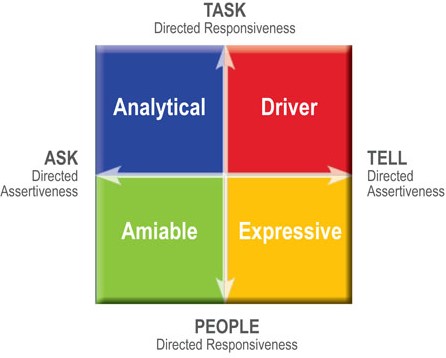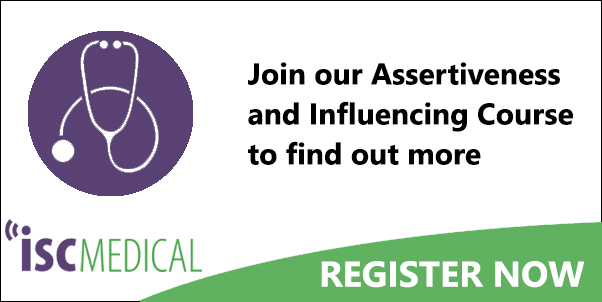Why the Social Styles Model is Better than Myers Briggs to Help Influence People in Day to Day Life
The Myers Briggs personality test (or MBTI (Myers-Briggs Type Indicator) as it is formally called) can be very useful to help managers understand how to best manage an employee. However MBTI is very complex, splits people into 16 different personality types and is pretty much useless when it comes to using it to manage someone you barely know.
After all, before holding a potentially difficult meeting with someone, you are very unlikely to ask them to undergo a personality test beforehand in a bid to determine how you should handle their personality.
This is where the Social Styles model comes in.

Social Styles only uses 4 personality types, corresponding to the four quadrants of a graph plotting how assertive people are whether they are more focused on the task at hand or the people with whom they are working. It is relatively easy to assess where particular individuals might fit on the graph, sometimes in a matter of minutes and therefore to understand how you might want to approach to get what you need from them.

For example, people who are in the Amiable (green) category usually will not rush into decisions, at least not with decisions that have broad implications or involve risk and dramatic change. They want reassurance that decisions will not result in dramatic changes to the status quo or any sort of damage to meaningful relationships. They rely on their own feelings about a decision, and also on the input of others whom they trust. They usually won’t make decisions in isolation. Instead they will seek the opinions of people close to them, and will include these opinions as a large factor in their decision process.
Therefore, if you have a meeting with an Amiable, you cannot put them on the spot. You will need to send material in advance so they have time to digest the information. You will also need to validate your points with proper evidence. Amiables value expert opinion and so simply asking them to take your word for things won’t make them budge.
Conversely, Drivers (red) prefer the big picture and facts. If you have a meeting with a Driver, it is crucial that you don’t drown them in detail otherwise they will lose interest. Stick to the broad lines and if you want to convey detail, attach it in a document that they can read at their leisure if they have time to do so. Drivers also like to be in control so if you have a subordinate who is has a Driver personality, you need to make sure they are trusted to take responsibility with some tasks otherwise they will feel undervalued.
The Social Styles types are obviously a bit more comprehensive than that and we explore them in some detail in our Assertiveness and Influencing course. Of all the personality tests available this is probably the one that will serve you best.




